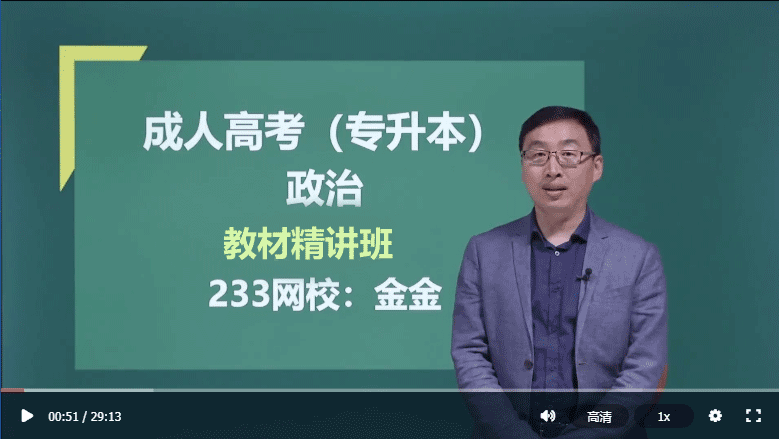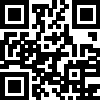2008хЙДцшфИхцЌшБшЏщчЙшЏцГфИяМфЛЃшЏ
ууфИуфЛЃшЏ
уу1уфККчЇАфЛЃшЏ
ууфИЛц МIyouheяМsheяМitweyouthey
уухЎОц МmeyouhimяМherяМitusyouthem
уу1.1цхКфИшЌфИКяМчЌЌфКфККчЇАяМчЌЌфИфККчЇАяМфККчЇАяМyouяМheandIяМyouяМJohnandI
уу1.2itччЈцГ
уут фЛЃфКчЉухЈчЉухЉДхПфЛЅхцЊчЅчфККцфКяМWhoisthatяМItтsmyfriend.
уутЁчЈфКхМхКщфККчЇАхЅяМшЁЈчЄКхЄЉцАуцЖщДхшЗчІЛчяМItтscloudytoday.
уутЂхНЂхМфЛЃшЏяМItisquiterightthatyoudidthat.
уутЃхМхЏМхМКшАхЅяМItwashisfatherthatmadehimalawyer.
уу2учЉфИЛфЛЃшЏ
уухНЂхЎЙшЏцЇmyyourhisяМherяМitsouryourtheir
уухшЏцЇmineyourshisяМhersяМitsoursyourstheirs
уу2.1хНЂхЎЙшЏцЇчЉфИЛфЛЃшЏхБщхЎшЏшхДяМцГЈцщПх фККчЇАхцАчшЏЏчЈу
уу2.2хшЏцЇчЉфИЛфЛЃшЏхЏфНфИЛшЏухЎОшЏхшЁЈшЏу
ууOursisasocialistcountry.Thisdictionaryismine.afriendofminenofaultofyours
уу3ухшКЋфЛЃшЏ
ууmyselfyourselfhimselfяМherselfяМitselfourselvesyourselvesthemselves
ууTakecareofyourself.HewasteachinghimselfEnglish.
ууThemaninthephotoismyself.Sheherselfwasadoctor.
уу4уцчЄКфЛЃшЏяМthisуthatуtheseуthose
уу4.1х ГфКthatчхКхЎчЈцГяМ
ууяМ1яМJackhelpedfinishmyworkandthatwaskindofhim.цАх хИЎхЉцхЎцфКфЛЛхЁяМфЛяМщЃц ЗхяМчцЏхЄЊхЅНфКу
ууяМ2яМHetoldmeonlypartofthestoryandthatwasthat.фЛхЊшЗцшЎВфКшПфИЊц фКчфИщЈхяМхАБщЃфКу
уу4.2х ГфКthatхthoseяМ
ууяМ1яМItтsadifferentkindofcarfromthatяМkindofcarяМяМwhichяМIтmusedto.шПчЇцБНшНІхццфЙ цЏчщЃчЇфИху
ууяМ2яМThepresidentandhiswifewereamongthoseяМwhowereяМpresentattheceremony.
уухКхИщЃфИЊх ИчЄМццЛчЛхфЛчхЄЋфККу
уу5учИфКфЛЃшЏяМeachotherяМфИЄш яМхoneanotherяМфИЄш фЛЅфИяМ
ууяМ1яМThetwopartiesяМtheDemocraticPartyandtheRepublicPartyoftenattackeachother.
ууяМ2яМTheboysinthisclassliketobullyoneanother.шПфИЊчфИччЗхЉххцЌЂфКчИццу
уу6уфИхЎфЛЃшЏ
уу6.1allхboth
ууяМ1яМхш шЁЈчЄКфИЄфИЊфЛЅфИяМхш шЁЈчЄКфИЄфИЊуяМ2яМщНфНфКшЁфИКхЈшЏфЙхяМbeхЈшЏхяМ
ууTheyallяМbothяМagreedwithme.TheyareallяМbothяМquitewealthy.
уу6.2nooneхnone
ууяМ1яМnooneхЊчЈфКцфККяМnoneхЏцфККфЙхЏцчЉуNoneofхцЅчшАшЏхЏчЈхЄцАфЙхЏчЈхцАу
ууNoonetoldusthathewasthere.Iwantsomemilkbuttherewasnoneinthehouse.
ууHowmanyelephantsdidyouseeatthezoo?----None.
ууNoneofthemhaveяМhasяМarrivedyet.Noneofthismoneyismine.
уу7уsome/any/no/every+яМthingяМoneяМbodyтІяМ
уу7.1everyoneхeveryone
уухш ццфИК"цЏфИЊфКК"яМфИeverybodyхфЙяМчЈфКцГцяМфИхЏшЗofчшЏяМ
уухш цццЏцЏфИЊфККцчЉяМчЈфКчЙцяМхЏшЗofчшЏу
ууeveryoneinthevillageцхщццчфККяМцГцяМeveryoneofthechildrenшПфКхЉхфИчцЏфИфИЊяМчЙцяМ
уу7.2anybodyяМeverybodyх"everyяМeachяМ+хцАхшЏ"
ууцЃхМшБшЏAnybodycandoitifheorshetries.цЅхИИшБшЏiftheytry
ууEverybodystartedwavinghisflag.theirflags
ууEverybodyhasarrivedяМhasnтtheяМhavenтtthey
уу***EverythingisallrightяМisnтsitяМ
уу7.3somethingяМanythingяМnothingчшЂЋхНЂхЎЙшЏфПЎщЅАцЖяМшЏЅхНЂхЎЙшЏхчНЎяМnothingwrong
уу8ухІхЎ
уу1яМщЈххІхЎяМхНallяМbothяМeachхeveryяМbodyяМthingяМчшЁЈчЄКцДфНцфЙчфЛЃшЏфИхІхЎшЏшПчЈцЖяМфИшЌхЊшЁЈчЄКщЈххІхЎу
ууAllofthestudentsdidnotturnup.фИцЏццчхІчщНхКхИучАфЛЃшБшЏхИИчЈфНяМNotallofthestudentsturnedup.
уу2яМх ЈщЈхІхЎяМnoneяМnooneяМneitherяМnobodyяМnothingчхЏЙцДфНцфЙх ЗцхІхЎфНчЈчфЛЃшЏцхЏшЏу
ууNoneofthestudentsturnedup.цВЁцфИфИЊхІчхКхИу
уу9ух ЖфЛщхЎшЏ
уу1яМхИИшЇфПЎщЅАхЏцАхшЏчщхЎшЏяМяМaяМfewяМacoupleofяМbothяМmanyяМmanyaяМagreatmanyяМseveralяМanumberof
уу2яМхИИшЇфПЎщЅАфИхЏцАхшЏчщхЎшЏяМяМaяМlittleяМmuchяМaяМlargeяМamountofяМagreatdealofяМabitof
уу3яМsome/any/noanyяМщшЏхЎхЅяМхІхЎучщЎуцЁфЛЖхЅяМnoяМхІхЎхЅ
ууsomeяМшЏхЎхЅххЋцшЏхЎцхГчхКхяМчЙцЎхІяМ
ууCanIhavesomecoffeeяМшЏЗцБцхИцхОхАшЏхЎхчцЖу
ууSomeidiotparkedhiscaroutsidemygarage.шЁЈчЄКцфИфИЊ=acertain
уу4яМmany/muchmanyцЅхЏцАхшЏхЄцАяМmuchцЅфИхЏцАхшЏяМхЈшЏхЎхЅфИхИИхsoхtooшПчЈ
ууIhavemetяМsoяМmanypeoplewhoshareyourview.яМSoяМMuchtimehasbeenwasted.
уу**manya+хцАхЏцАхшЏчИхНфКmany+хЄцАхшЏ
ууShehasbeentoBeijingmanyatime.яМmanytimesяМManyanaccidenthashappenedhere.
уу5яМeach/every
ууeachчЈфНхшЏцхНЂхЎЙшЏяМeveryчЈфНхНЂхЎЙшЏяМхщЂхП щЁЛшЗхшЏу
уу"цфЛЌфИчцЏфИЊфКК"хКфИКeveryoneofusцeachofus.
уу6яМboth/either
ууbothфИКфИЄш щНтІяМхцЅхЄцАхЈшЏяМeitherфИКфИЄш фИфЛЛфНфИфИЊяМцЅхцАхЈшЏуфИЄш чхІхЎхНЂхМфИКneither.
ууTruthmaylieonbothsidesяМoneithersideяМoronneitherяМsideяМу
уу7яМeither/anyeitherфИКфИЄш фИчфЛЛфНфИфИЊяМanyфИКфИЄш фЛЅфИфИчфЛЛфНфИфИЊу
ууComeonTuesdayorWednesday.EitherdayisOK.Youwillfindmeatmydeskatanyhouroftheday.
уу***eitherхцЅendяМsideчшЏццЖхЏцфИЄфИЊщНяМTherearetreesoneithersideofthestreet.=bothsides
уу8яМneither/none
уушЁЈчЄКфИЄш щНфИтІяМчЈneitherяМшЁЈчЄКфИЄш фЛЅфИщНфИтІяМчЈnoneяМofяМу
ууNeitherцЅхцАхЏцАхшЏяМnoneofцЅхЄцАхшЏу
ууNeitherbookismine.
ууNoneofthebooksontheshelvesbelongtome.яМчЈхЄцАхЈшЏяМхМКшА"щНфИцЏ"яМ
уу**OfallthebooksontheshelvesяМnonebelongstome.яМчЈхцАхЈшЏяМхМКшА"цВЁцфИцЌцЏ".яМ
уу9яМall/whole
уухКхЋяМт allхЏцЅхЄцАхЏцАхшЏцфИхЏцАхшЏяМwholeфИшЌцЅхцАхЏцАхшЏу
уутЁшЏхКяМallчЈфКх шЏуццц Мцх ЖфЛщхЎшЏфЙхяМwholeхЊчЈфКх шЏчщхЎшЏчхщЂу
ууHeateallthevegetables.Heatethewholepie.
ууThewholebookisinteresting.Allthechaptersareinteresting.
уу10яМanother/other
ууThisbookistoodifficult.Showmeanotherone.
ууOfthethreebooksonthedeskяМtwoarewrittenbyDickensяМtheotheroneiswrittenbyMarkTwain.
уу***otherхщЂхЏхИІsomeяМanyяМeveryяМmanyяМoneяМhisчх ЖфЛщхЎшЏу
ууWillyoucomesomeothertimeяМцЙцЅPleasewriteoneveryotherline.щшЁ
уу***therestofthemoneyфИхЏцАхшЏtherestoftheworkersхЏцАхшЏ
уу11яМanumberof/thenumberof
уухш фИКяМшЎИхЄтІяМхцЅхЄцАхшЏяМшАшЏчЈхЄцАухш фИКяМтІчцЛцАяМшАшЏчЈхцАу
ууAnumberofcomradeswereabsentfromthemeeting.
ууThenumberofcomradesabsentfromthemeetingwassurprising.
уу12яМfew/afewfewшЁЈхІхЎяМafewшЁЈцАщфИхЄЇяМшЁЈшЏхЎу
ууquiteafewшЁЈчИхНхЄяМфИКшЏхЎуonlyafewшЁЈхІхЎяМхfew.
уу13яМlittle/alittleчЈцГхфИ
уу1уфККчЇАфЛЃшЏ
ууфИЛц МIyouheяМsheяМitweyouthey
уухЎОц МmeyouhimяМherяМitusyouthem
уу1.1цхКфИшЌфИКяМчЌЌфКфККчЇАяМчЌЌфИфККчЇАяМфККчЇАяМyouяМheandIяМyouяМJohnandI
уу1.2itччЈцГ
уут фЛЃфКчЉухЈчЉухЉДхПфЛЅхцЊчЅчфККцфКяМWhoisthatяМItтsmyfriend.
уутЁчЈфКхМхКщфККчЇАхЅяМшЁЈчЄКхЄЉцАуцЖщДхшЗчІЛчяМItтscloudytoday.
уутЂхНЂхМфЛЃшЏяМItisquiterightthatyoudidthat.
уутЃхМхЏМхМКшАхЅяМItwashisfatherthatmadehimalawyer.
уу2учЉфИЛфЛЃшЏ
уухНЂхЎЙшЏцЇmyyourhisяМherяМitsouryourtheir
уухшЏцЇmineyourshisяМhersяМitsoursyourstheirs
уу2.1хНЂхЎЙшЏцЇчЉфИЛфЛЃшЏхБщхЎшЏшхДяМцГЈцщПх фККчЇАхцАчшЏЏчЈу
уу2.2хшЏцЇчЉфИЛфЛЃшЏхЏфНфИЛшЏухЎОшЏхшЁЈшЏу
ууOursisasocialistcountry.Thisdictionaryismine.afriendofminenofaultofyours
уу3ухшКЋфЛЃшЏ
ууmyselfyourselfhimselfяМherselfяМitselfourselvesyourselvesthemselves
ууTakecareofyourself.HewasteachinghimselfEnglish.
ууThemaninthephotoismyself.Sheherselfwasadoctor.
уу4уцчЄКфЛЃшЏяМthisуthatуtheseуthose
уу4.1х ГфКthatчхКхЎчЈцГяМ
ууяМ1яМJackhelpedfinishmyworkandthatwaskindofhim.цАх хИЎхЉцхЎцфКфЛЛхЁяМфЛяМщЃц ЗхяМчцЏхЄЊхЅНфКу
ууяМ2яМHetoldmeonlypartofthestoryandthatwasthat.фЛхЊшЗцшЎВфКшПфИЊц фКчфИщЈхяМхАБщЃфКу
уу4.2х ГфКthatхthoseяМ
ууяМ1яМItтsadifferentkindofcarfromthatяМkindofcarяМяМwhichяМIтmusedto.шПчЇцБНшНІхццфЙ цЏчщЃчЇфИху
ууяМ2яМThepresidentandhiswifewereamongthoseяМwhowereяМpresentattheceremony.
уухКхИщЃфИЊх ИчЄМццЛчЛхфЛчхЄЋфККу
уу5учИфКфЛЃшЏяМeachotherяМфИЄш яМхoneanotherяМфИЄш фЛЅфИяМ
ууяМ1яМThetwopartiesяМtheDemocraticPartyandtheRepublicPartyoftenattackeachother.
ууяМ2яМTheboysinthisclassliketobullyoneanother.шПфИЊчфИччЗхЉххцЌЂфКчИццу
уу6уфИхЎфЛЃшЏ
уу6.1allхboth
ууяМ1яМхш шЁЈчЄКфИЄфИЊфЛЅфИяМхш шЁЈчЄКфИЄфИЊуяМ2яМщНфНфКшЁфИКхЈшЏфЙхяМbeхЈшЏхяМ
ууTheyallяМbothяМagreedwithme.TheyareallяМbothяМquitewealthy.
уу6.2nooneхnone
ууяМ1яМnooneхЊчЈфКцфККяМnoneхЏцфККфЙхЏцчЉуNoneofхцЅчшАшЏхЏчЈхЄцАфЙхЏчЈхцАу
ууNoonetoldusthathewasthere.Iwantsomemilkbuttherewasnoneinthehouse.
ууHowmanyelephantsdidyouseeatthezoo?----None.
ууNoneofthemhaveяМhasяМarrivedyet.Noneofthismoneyismine.
уу7уsome/any/no/every+яМthingяМoneяМbodyтІяМ
уу7.1everyoneхeveryone
уухш ццфИК"цЏфИЊфКК"яМфИeverybodyхфЙяМчЈфКцГцяМфИхЏшЗofчшЏяМ
уухш цццЏцЏфИЊфККцчЉяМчЈфКчЙцяМхЏшЗofчшЏу
ууeveryoneinthevillageцхщццчфККяМцГцяМeveryoneofthechildrenшПфКхЉхфИчцЏфИфИЊяМчЙцяМ
уу7.2anybodyяМeverybodyх"everyяМeachяМ+хцАхшЏ"
ууцЃхМшБшЏAnybodycandoitifheorshetries.цЅхИИшБшЏiftheytry
ууEverybodystartedwavinghisflag.theirflags
ууEverybodyhasarrivedяМhasnтtheяМhavenтtthey
уу***EverythingisallrightяМisnтsitяМ
уу7.3somethingяМanythingяМnothingчшЂЋхНЂхЎЙшЏфПЎщЅАцЖяМшЏЅхНЂхЎЙшЏхчНЎяМnothingwrong
уу8ухІхЎ
уу1яМщЈххІхЎяМхНallяМbothяМeachхeveryяМbodyяМthingяМчшЁЈчЄКцДфНцфЙчфЛЃшЏфИхІхЎшЏшПчЈцЖяМфИшЌхЊшЁЈчЄКщЈххІхЎу
ууAllofthestudentsdidnotturnup.фИцЏццчхІчщНхКхИучАфЛЃшБшЏхИИчЈфНяМNotallofthestudentsturnedup.
уу2яМх ЈщЈхІхЎяМnoneяМnooneяМneitherяМnobodyяМnothingчхЏЙцДфНцфЙх ЗцхІхЎфНчЈчфЛЃшЏцхЏшЏу
ууNoneofthestudentsturnedup.цВЁцфИфИЊхІчхКхИу
уу9ух ЖфЛщхЎшЏ
уу1яМхИИшЇфПЎщЅАхЏцАхшЏчщхЎшЏяМяМaяМfewяМacoupleofяМbothяМmanyяМmanyaяМagreatmanyяМseveralяМanumberof
уу2яМхИИшЇфПЎщЅАфИхЏцАхшЏчщхЎшЏяМяМaяМlittleяМmuchяМaяМlargeяМamountofяМagreatdealofяМabitof
уу3яМsome/any/noanyяМщшЏхЎхЅяМхІхЎучщЎуцЁфЛЖхЅяМnoяМхІхЎхЅ
ууsomeяМшЏхЎхЅххЋцшЏхЎцхГчхКхяМчЙцЎхІяМ
ууCanIhavesomecoffeeяМшЏЗцБцхИцхОхАшЏхЎхчцЖу
ууSomeidiotparkedhiscaroutsidemygarage.шЁЈчЄКцфИфИЊ=acertain
уу4яМmany/muchmanyцЅхЏцАхшЏхЄцАяМmuchцЅфИхЏцАхшЏяМхЈшЏхЎхЅфИхИИхsoхtooшПчЈ
ууIhavemetяМsoяМmanypeoplewhoshareyourview.яМSoяМMuchtimehasbeenwasted.
уу**manya+хцАхЏцАхшЏчИхНфКmany+хЄцАхшЏ
ууShehasbeentoBeijingmanyatime.яМmanytimesяМManyanaccidenthashappenedhere.
уу5яМeach/every
ууeachчЈфНхшЏцхНЂхЎЙшЏяМeveryчЈфНхНЂхЎЙшЏяМхщЂхП щЁЛшЗхшЏу
уу"цфЛЌфИчцЏфИЊфКК"хКфИКeveryoneofusцeachofus.
уу6яМboth/either
ууbothфИКфИЄш щНтІяМхцЅхЄцАхЈшЏяМeitherфИКфИЄш фИфЛЛфНфИфИЊяМцЅхцАхЈшЏуфИЄш чхІхЎхНЂхМфИКneither.
ууTruthmaylieonbothsidesяМoneithersideяМoronneitherяМsideяМу
уу7яМeither/anyeitherфИКфИЄш фИчфЛЛфНфИфИЊяМanyфИКфИЄш фЛЅфИфИчфЛЛфНфИфИЊу
ууComeonTuesdayorWednesday.EitherdayisOK.Youwillfindmeatmydeskatanyhouroftheday.
уу***eitherхцЅendяМsideчшЏццЖхЏцфИЄфИЊщНяМTherearetreesoneithersideofthestreet.=bothsides
уу8яМneither/none
уушЁЈчЄКфИЄш щНфИтІяМчЈneitherяМшЁЈчЄКфИЄш фЛЅфИщНфИтІяМчЈnoneяМofяМу
ууNeitherцЅхцАхЏцАхшЏяМnoneofцЅхЄцАхшЏу
ууNeitherbookismine.
ууNoneofthebooksontheshelvesbelongtome.яМчЈхЄцАхЈшЏяМхМКшА"щНфИцЏ"яМ
уу**OfallthebooksontheshelvesяМnonebelongstome.яМчЈхцАхЈшЏяМхМКшА"цВЁцфИцЌцЏ".яМ
уу9яМall/whole
уухКхЋяМт allхЏцЅхЄцАхЏцАхшЏцфИхЏцАхшЏяМwholeфИшЌцЅхцАхЏцАхшЏу
уутЁшЏхКяМallчЈфКх шЏуццц Мцх ЖфЛщхЎшЏфЙхяМwholeхЊчЈфКх шЏчщхЎшЏчхщЂу
ууHeateallthevegetables.Heatethewholepie.
ууThewholebookisinteresting.Allthechaptersareinteresting.
уу10яМanother/other
ууThisbookistoodifficult.Showmeanotherone.
ууOfthethreebooksonthedeskяМtwoarewrittenbyDickensяМtheotheroneiswrittenbyMarkTwain.
уу***otherхщЂхЏхИІsomeяМanyяМeveryяМmanyяМoneяМhisчх ЖфЛщхЎшЏу
ууWillyoucomesomeothertimeяМцЙцЅPleasewriteoneveryotherline.щшЁ
уу***therestofthemoneyфИхЏцАхшЏtherestoftheworkersхЏцАхшЏ
уу11яМanumberof/thenumberof
уухш фИКяМшЎИхЄтІяМхцЅхЄцАхшЏяМшАшЏчЈхЄцАухш фИКяМтІчцЛцАяМшАшЏчЈхцАу
ууAnumberofcomradeswereabsentfromthemeeting.
ууThenumberofcomradesabsentfromthemeetingwassurprising.
уу12яМfew/afewfewшЁЈхІхЎяМafewшЁЈцАщфИхЄЇяМшЁЈшЏхЎу
ууquiteafewшЁЈчИхНхЄяМфИКшЏхЎуonlyafewшЁЈхІхЎяМхfew.
уу13яМlittle/alittleчЈцГхфИ
чИх ГцЈш
- 2017хЙДцфККщЋшфИхцЌшБшЏшшЏххЙДчщЂфНцчВОщцБцЛ03-28
- 2017хЙДцфККщЋшфИхцЌшБшЏшшЏххЙДчщЂфНцчВОщфЙ03-24
- 2017хЙДцфККщЋшфИхцЌшБшЏшшЏххЙДчщЂфНцчВОщх Ћ03-24
- 2017хЙДцфККщЋшфИхцЌшБшЏшшЏххЙДчщЂфНцчВОщфИ03-24
- 2017хЙДцфККщЋшфИхцЌшБшЏшшЏххЙДчщЂфНцчВОщх 03-24
| ПЮГЬзЈвЕУћГЦ | НВЪІ | дМл/гХЛнМл | УтЗбЬхбщ | БЈУћ |
|---|---|---|---|---|
| гяЮФ(ИпЦ№Еу)ОЋНВАр | ЕЫО§УФ | ЃЄ150 / ЃЄ150 |  |
БЈУћ |
| гЂгя(ИпЦ№Еу)ОЋНВАр | Monica | ЃЄ150 / ЃЄ150 |  |
БЈУћ |
| Ъ§бЇ(ЮФ)ОЋНВАр | ЭѕЗМ | ЃЄ150 / ЃЄ150 |  |
БЈУћ |
| Ъ§бЇ(Рэ)ОЋНВАр | ТогзжЅ | ЃЄ150 / ЃЄ150 |  |
БЈУћ |
| ДѓбЇгяЮФ(зЈЩ§БО)ОЋНВАр | ХЗбєАиСи | ЃЄ150 / ЃЄ150 |  |
БЈУћ |
| гЂгя(зЈЩ§БО)ОЋНВАр | Monica | ЃЄ150 / ЃЄ150 |  |
БЈУћ |
| ИпЕШЪ§бЇ(вЛ)(зЈЩ§БО)ОЋНВАр | ЭѕЬЮ | ЃЄ150 / ЃЄ150 |  |
БЈУћ |
| ИпЕШЪ§бЇ(Жў)(зЈЩ§БО)ОЋНВАр | ТогзжЅ | ЃЄ150 / ЃЄ150 |  |
БЈУћ |
ИЈЕМПЮГЬ
- ИпЦ№Еу-Ъ§бЇ(ЮФЪЗВЦОРр)

- ЭѕЗМРЯЪІ
 УтЗбЪдЬ§
УтЗбЪдЬ§
- ИпЦ№Еу-гЂгя

- MonicaРЯЪІ
 УтЗбЪдЬ§
УтЗбЪдЬ§
- зЈЩ§БО-ДѓбЇгяЮФ

- ХЗбєАиСиРЯЪІ
 УтЗбЪдЬ§
УтЗбЪдЬ§
АрМЖНщЩм
ЬзВЭАќКЌЃКзЈЩ§БОVIPАр/ИпЦ№ЕуVIPАрЃЈКЌОЋНВ+ецЬтНтЮі+ФЃПМЕуЬт)
ЬзВЭгХЪЦЃК1ЁЂЫјЖЈКЫаФПМЕу
2ЁЂПМЧАЗЂЗХ2ЬзЪдЬт
3ЁЂУтЗбжибЇвЛДЮБЃеЯ
ХфЬзЗўЮёЃК1ЁЂУтЗбЬтПт
2ЁЂПЮГЬНВвх+ПЮМўЯТди+вЦЖЏПЮЬУ







 УтЗбЪдЬ§
УтЗбЪдЬ§ 




